
Nutraceuticals are taking the world by storm, driving an industry that is slated to grow at a rate of 6.8% over the next five years. In fact, the nutraceutical industry is already worth around $383 billion dollars worldwide. So what are nutraceuticals and how did this industry balloon into existence? More importantly, what can you do to capitalize on the current trends and get a piece of the pie? This guide will explain the ins and outs of nutraceuticals and where they are headed in the future.
What are Nutraceuticals?
The term "Nutraceutical" is a relatively new concept that refers to food products or dietary supplements that harness both basic nutritional value as well as some positive health benefits. For instance, common nutraceutical claims include weight loss, anti-aging, muscle building, digestion regulation, immune system boosting, heart healthy and even skin elasticity. All of these claims are part of the nutraceutical concept that the food itself has properties that can not only nourish your body, but also enhance some aspect of your health in a greater way.
Currently, the nutraceutical market is filled with what we know as "functional foods and beverages" as well as dietary supplements. While dietary supplements typically come in tablet, capsule or liquid form, functional foods can be just about anything that has added pre-biotics, pro-biotics, vitamins, minerals, proteins, fibers, and other ingredients. One of the fastest growing functional food categories is those fortified with omega fatty acids, expected to grow 6.8% during the next five years as well.
Why are Nutraceuticals so Important?
The nutraceutical industry is answering the call of consumers who want to live healthier lives with fewer visits to the doctor. The common belief is that using nutraceutical products will help prevent major health crises and lower the cost of healthcare when it is necessary because we are taking better care of our bodies the majority of the time. Essentially, nutraceuticals act as a preventative measure against major illness for most people, and this is important in areas where healthcare costs have skyrocketed and people are becoming more aware of the challenges associated with getting proper care.
The Future of Nutraceuticals
We already have access to some valuable information about various nutraceutical products today. For instance, we see that functional beverages are becoming a bigger part of the picture with additions like juice cleanses, sports drinks, energy drinks, and teas. In the mean time, natural supplements like vitamins and minerals continue to sell well. Functional foods make up the largest part of the nutraceutical market, and with the turn to non-GMO products, we continue to see advancements in how these products are marketed and used. Interestingly, the global marketplace for nutraceutical products is quite vast, and the North American market is only now growing into its discovery of these products, many of which have been selling in Asia and Europe for much longer. Thus, we expect to see significant growth continuing in the US for the foreseeable future.
Bringing Your Nutraceuticals to the Market
When it comes to marketing your nutraceuticals, you are up against some of the biggest companies in the game, including names like Coca Cola, Activia, General Mills and more. However, smaller companies do have a special hold on this industry as consumers grow distrustful of what those large companies represent for their health. The biggest things you need to consider are how you package and label your products.
You need to consider the shape of your products, whether they be bottles, bags or pop tops. In addition, you will need to think through various sizing options. How large of a container do you need to store your product without tons of empty space? Or how much room do you need for filler? In addition, if you are selling fresh food products, will you be selling them in large sizes for families, or only in sizes that the average individual can consume before the expiration date?
As for the label, you need to make sure that all the benefits of your product are obvious to the consumer, while also meeting FDA guidelines for food labels. For instance, do you need a label that wraps all the way around your container or only partially? And do you need top or bottom labels to provide additional label real estate? The decisions you make can drastically impact the final look of your labels on the shelf, down to the colors you choose. For instance, green is a color often associated with healthy eating, as well as non-GMO products. Choosing colors and designs that offer consistency will help consumers recognize your products from afar, and help them identify products within the same line that go together. One example is supplement series that all go together and indicate where in your product line they fall. All of this information needs to meet current FDA standards.
Another important consideration is whether or not you will be adding tamper-evident seals to your products. This is a big deal for supplement packaging, but it is also becoming very common for fresh foods and other nutraceuticals that want to impart a feeling of confidence on customers.
If you are working on bring your nutraceuticals to market, and you are in the packaging design phase, we invite you to contact our labeling experts at Pack Leader USA. Our team can help answer any questions you may have about package design and how it will affect your labeling options in the future, as well as what kind of labels and labeling equipment will be best suited to the needs of your product and your consumers in the long run.
.webp?width=200&height=114&name=2x-Packleader-logo-large%20(1).webp)

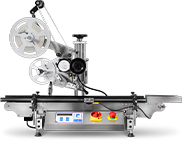
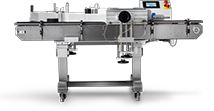
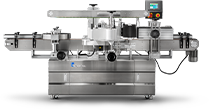
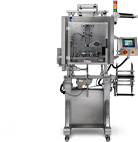
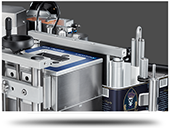
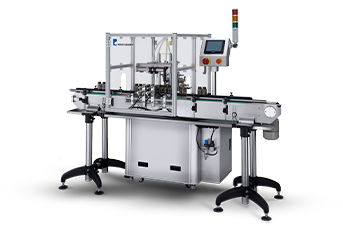
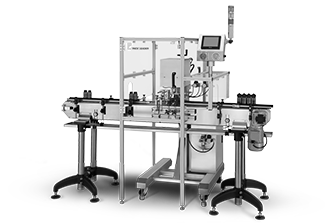
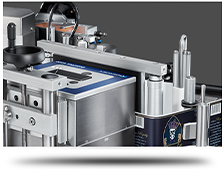





.webp?width=360&name=2x-color-logo%20(1).webp)